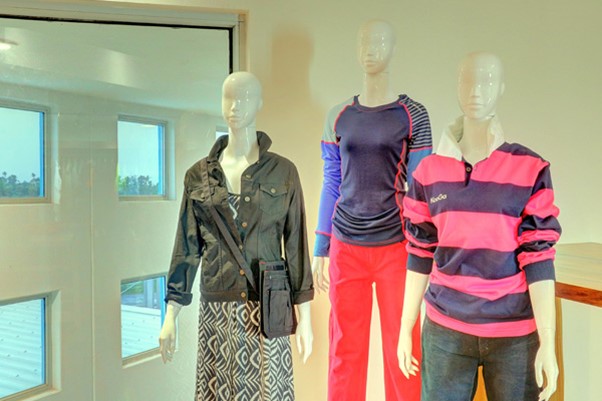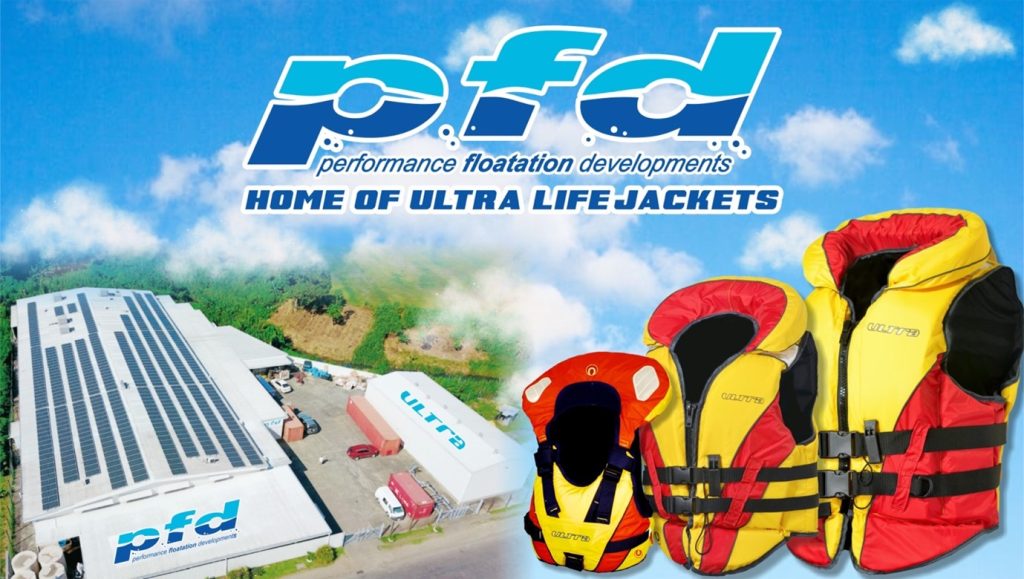Textile Clothing & Footwear Council of Fiji
TCF Council of Fiji: A Leader in Fijian Manufacturing and Social Responsibility
By : Inbamalar Wanarajan, President TCF Council Fiji
Fiji is largely a product of volcanic eruption, sedimentary deposit and formation of coral situated in the south Pacific. A world known tourist destination because of its blue sea, white sand, and the friendliest people. The republic of Fiji comprises of 300 islands, Viti levu and Vanua Levu are dominantly concentrated with large population. According to the world bank Fiji’s population is 924,610, official language is Fijian, English and Fiji Hindi. Manufacturing, tourism and agriculture are the major contributors to the country’s economy.
Amongst many other manufacturing industries in Fiji, export-oriented garment sector successfully maintains its own significance in contributing to Fijian economy. Annual garment export is approximately $FJ 120 m in foreign currency and employ over 7,000 local workers, notedly majority are women counterpart. The industry produces popular brands to its major trading partners Australia, New Zealand and to the international market. Fiji TCF industry is adaptable, flexible, fast and firmly committed to meet the expectations of wholesale buyers and retail consumers. Moreover, English as communicating language in Fiji is an additional attribute to the industry which makes convenient not only to the involved stakeholders but also to the clients as well.
 As one of the major employers in Fiji, textile clothing and footwear industry established the council to advocate textile and footwear products to Fiji and worldwide. The Council’s strategic vision for the industry’s long-term sustainability requires active engagement with a wide variety of stakeholders. This extends from the Executive level of government in Fiji and abroad, to international industry specialists, various NGO’s and social interest groups, through to industry suppliers, local factories and trade unions.
As one of the major employers in Fiji, textile clothing and footwear industry established the council to advocate textile and footwear products to Fiji and worldwide. The Council’s strategic vision for the industry’s long-term sustainability requires active engagement with a wide variety of stakeholders. This extends from the Executive level of government in Fiji and abroad, to international industry specialists, various NGO’s and social interest groups, through to industry suppliers, local factories and trade unions.
“Make it in Fiji” certified garment industry continues quality services along with greater degree of flexibility to fulfills customer demand while considering social responsibility as vital part of routinised activity. Through “MAKE IT IN FIJI “logo, TCF Council initiated a certification program for its members to follow and comply with council established acceptable standards. Member performance are reviewed to assure every clients are satisfied with the services. This is a mandated process for member subscription annually without compromising the quality of the garments produced in Fiji. The council conduct meetings with all members at frequent intervals and the chair of the council invite all members to discuss about ongoing and emerging issues to make decision collectively. Sub committees also appointed whenever necessary while scheduling Annual general meetings at all members convenient times.
Fiji garment factories are proficient at manufacturing the following garments.
- Workwear (shorts, trousers, jackets and shirts)
- Industrial safety wear
- Sportswear (shorts and tops)-including sublimation
- Casuals ( jeans, t shirts, polos etc)
- Uniforms
- Ladies apparel
- Corporate wear ( suits, jackets and formal wear)
- Life jackets
- intimates
- Aprons, Scrubs, Patient gowns, etc.
In addition to the “Make it in Fiji” Fijian government introduced “Fijian Sewn” as part of buy Fijian Campaign in 2011. A campaign to foster Fijian national branding in order to promote Fijian products and services to domestic and international markets. Council members are licensed with “Fijian Sewn” during the campaign and this emblem provides factories to further advance in both local and international markets. By utilizing Fijian Sewn emblem, the industry export uniforms, sportswear and corporate wear to many South Pacific Island countries including Samoa, PNG, Tonga, Vanuvatu, Kiribati Tokelau and Solomon Islands.
 Furthermore, Fijian garment exporters also acclimated to manufacture garments to the US market under the WTO preferential quota system before 2000 (this quota system expired in 2000). From the previous experience currently the council making efforts to expand its market to the US under General System of Preferences (GST), met with the Trade Commissioner North America and made submission.
Furthermore, Fijian garment exporters also acclimated to manufacture garments to the US market under the WTO preferential quota system before 2000 (this quota system expired in 2000). From the previous experience currently the council making efforts to expand its market to the US under General System of Preferences (GST), met with the Trade Commissioner North America and made submission.
According to the council established quality standards, a qualified teams of technical, industrial engineering and development personals are engaged in developing garments, specially at the stages of pattern making, grading, modifying, fitting and sizing. During the production of garments these procedures are mandated to assure the quality of the garments. Total Quality Management system is adopted by performing quality checks at various levels beginning from raw material testing, serval inline inspection, to final random inspection before garments dispatched to the customer.
All garment factories in Fiji have their own in-house training facilities. This is an ongoing process for all garment employers in Fiji to upskilling the employees, replace skilled migration and to meet the deadlines. Requesting the government to establish training centers, so that the industry get steady supply of trained workers. TCF members of the council collectively made submission to the Technical and vocational Educational and Training (TVET) for upskilling of garment employees.
Individual factories invest in many areas at their convenient intervals. Investments are made in upgrading the production facilities through new technologies. Expanded to sublimation and embroidery plants. Factories also proudly support in protecting the environments by deploying green energy to power their production plants. The industry’s concern for the environment resulted in implanting green energy, that have minimal effect on environment, avoid pollution and mitigate climate change. As a circular economy practice, roof mounted solar PV system powers sewing and apparel printings not only lead to the growth of the country’s economy but also society’s healthy living.
Part of the industry’s social responsibility, Fiji garment employees are given fair treatment in wages and industry provides safety work environment by complying to the government established rules and regulations. Suppliers including labels, packaging materials (including carton boxes and poly bags.) also benefited while trading their product to garment factories. Further to TCF Council’s social responsibility, Council contributed to eye care services of Pacific Eye Institute for the benefit of the community’s lifetime heathy vision. Sponsored Prime minister youth awards in 2019 to support the youth entrepreneurs of Fiji. Donated to Ministry of Health during the pandemic, it should be highlighted that TCF industry’s economic contribution towards Fiji’s economy during pandemic was higher than other industry while maintaining social distance and covid- 19 protocols. Lastly, individual factories support emerging designers to use the production facilities to make designer garments during annual Fiji Fashion Week.
Taking everything into account Fiji as a beautiful Island nation flourishes with garment manufacturing sector with many other economic contributors. Actively involves in the entrepreneurship with relevant stakeholder while taking care of employee well-being and the environment. The industry determined not only to maintain as a prominent exporter but also anticipate further advancement in manufacturing garments with modern technologies to equivalent to other world countries. As an ethical Fijian manufacturer, industry optimizes social responsibility by complying with all government established laws.
AT A GLANCE
Textile Clothing & Footwear Council of Fiji
What: The TCF Council of Fiji exists to represent its members and advance the best interests of the industry by fostering the continued development and prosperity while championing long-term sustainability.
Where: Suva, Fiji Islands
Website: https://makeitinfiji.com/



 This information will never be shared to third parties
This information will never be shared to third parties